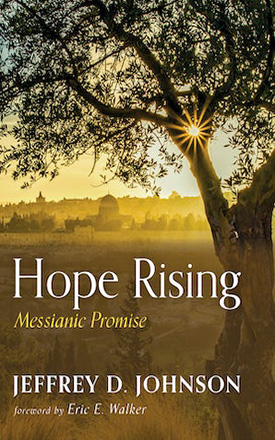Israel Today Resources:
-
 Hope Rising, Messianic Promise
Recommended donation: $20.00
Hope Rising, Messianic Promise
Recommended donation: $20.00
Add to cart
-
 Song of Song: The Greatest Lover
Recommended donation: $18.00
Song of Song: The Greatest Lover
Recommended donation: $18.00
Add to cart
-
 Divine Mysteries
Recommended donation: $15.00
Divine Mysteries
Recommended donation: $15.00
Add to cart
-

Gaza, a nightmare!
 A nightmare
Gaza has become the stuff of nightmares. The number of rocket and mortar attacks launched from Gaza in the last few years number in the tens of thousands. This is from where the October 7th attack originated and where hostages are still captive.
For Israelis, the terror in the night comes from here.
On May 18, 2025, the Israel Defense Forces (IDF) announced the beginning of Operation ‘Gideon’s Chariots which seeks to move ground operations to secure this 25-mile long stretch of real estate. Headlines abound, but what does the scripture say of this place?
Gaza’s Destruction was prophesied
Zephaniah, a minor prophet in the years before the Babylonian captivity, warned Israel of the coming judgement of the day of the Lord. Zephaniah’s description of this eminent judgment on both Israel and her enemies is stomach-turning. The “day of the Lord” was referenced 19 times in his short book.
Gaza and three other main Philistine cities were specifically prophesied for destruction. The coastal areas inhabited by the Philistines would be wiped out entirely and would become “pasturelands with caves for shepherds and pens for sheep.”  No Philistine would be left in this costal space (Zephaniah 2:4-6). The language yields something truly post-apocalyptic.
The prophesy for Israel and her enemies was fulfilled a few decades after the prophet’s call for repentance. Nebuchadnezzar the Great served as the tool for this destruction. Those cities were sacked and burnt around 586 B.C., during the same time Judah was taken into captivity.
Gaza is redeemed to restore His people
Zephaniah also spoke of hope following this judgment and wrath of the day of the Lord. The enemy who occupied land was prophesied to be redeemed for Judah as part of God’s restoration.
“The coastland will belong to the remnant of the house of Judah; they will find pasture there. They will lie down in the evening among the houses of Ashkelon, for the Lord their God will return to them and restore their fortunes” (Zephaniah 2:4-6).
Some rabbinic commentators translate the expression to mean lot, part or portion. Meaning this cleared sea-side lot, part or portion of land was set aside for Judah’s faithful remnant. This of course is consistent with the Abrahamic Covenant.
 Gaza is a portion of Abrahamic Covenant
Israel’s possession of this coastland is guaranteed in the covenant. “On that day the Lord made a covenant with Abram, saying, “I give this land to your offspring, from the Brook of Egypt to the great river, the Euphrates River…” (Genesis 15:18).
Gaza and Israel, then and now
The redemption of Gaza is congruent and fits within the wider framework of Israel’s redemption. The book concludes with the Lord saying He will bring Israel back and restore them and their fortunes following His discipline of Israel and the destruction of her enemies.
The “day of the Lord” is an important theme as it was referenced 19 times in Zephaniah.
While the day of the Lord was certainly realized with the events of the Babylonian conquest and subsequent captivity, we know there is another “day of the Lord” coming in the latter days. This is the Second Coming of Messiah (Matthew 24:29-31). Thus, there is a fulfillment past, and fulfillment future.
Likewise, the Philistines were wiped out or exiled with the Babylonians, but today enemies still occupy the sea-side portion of land promised in the covenant. So, there is fulfillment, and there is fulfillment to come. Perhaps, we are seeing the beginning of the future prophecy concerning Gaza.
Israel Today Ministries feeds children and Holocaust survivors in Israel. Thank you for your prayers and partnership as God enables you!
May God, bless you,
Scott Johnson
- Scott Johnson is a Senior Middle East Analyst, who lived and worked in the Middle East, and has degrees from Moody Bible Institute and the University of London.


